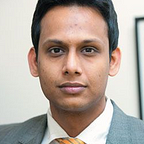National Commission for Scheduled Tribes’s notice to Youtube
Notice for removal of videos appears to be overboard and vague
As per a report in today’s Economic Times, the National Commission for Scheduled Tribes (NCST) has sent a notice to Youtube requiring them to remove certain videos.
The report reveals the following:
- It is a legal request is a for a takedown of videos which depict the Jarawa tribe which is native to the archipelago of the Andaman Islands. These videos purportedly are shot without their knowledge and, “outrage their modesty”.
- The press report also seems to indicate that the request is not limited to censorship of existing material but extents to any posts concerning the, “tribal group is posted in the future in any social media platform.”.
Both these requests lead to concern. Before we proceed it is important to restate that India grants social media platforms and online intermediaries such as Youtube exemption from liability for user generated content. This is contained under Section 79 of the Information Technology Act and further governed by the Intermediary Rules, 2011. This is a conditional exemption from liability dependent on compliance of a takedown within 36 hours of actual knowledge of the illegality of the user generated content.
These provisions were read down in the now famous Shreya Singhal Case [(2015) 5 SCC 1] by which the Supreme Court inter alia stated that:
- Notices for takedown could not be sent by private parties to online intermediaries. There is no obligation on social media companies to respond to notices by private parties and the receipt of such notice does not constitute, “actual knowledge” of the illegality. The court has also explicitly noted in para 117 that, “This is for the reason that otherwise it would be very difficult for intermediaries like Google, Facebook etc. to act when millions of requests are made and the intermediary is then to judge as to which of such requests are legitimate and which are not.”.
- The illegality of any user generated content has to be informed by an executive or judicial authority within the ambit of, “reasonable restrictions” as contained under Article 19(2) of the Constitution of India. On receiving any such notice the intermediary has to act within 36 hours.
Hence, when the request is contrasted against the existing compliances necessary for online intermediaries the request appears to be overbroad for the following reasons:
- No illegality mentioned : It seems that there is no specific indication of the underlying illegality which has been caused by the content of the videos. While there do exist a wide category of speech restrictions under the The Scheduled Castes and Scheduled Tribes (Prevention of Atrocities) Act,1989 (as amended in 2015) none have been specifically adverted to. While the actual notice (as opposed to the press report) may indicate such provisions, the quotes attributed in the press report do not assert any illegality per se. Hence, the request for takedown may not by itself fall within the ambit of, “reasonable restrictions” as contemplated under Article 19(2).
- Absence of specificity and future censorship : While request seems to omit specific URLs (this may be contained in the actual text of the order) what is a cause of greater concern is that it seems to mandate, censorship of any content, “posted in future”. This would require the platform to pro-actively screen and vet content by itself, thereby exercising a judicial function and leading to overbroad censorship. As indicated above by the Shreya Singhal Case this would further cut against the requirement of, “actual knowledge” that only commences on the receipt of a specific notice with respect to the illegality present in existing content.
While such vague requests have found their way in notices by various executive, judicial and statutory authorities, that does not make them correct as per the existing provisions of law which have leaned against pro-active censorship by online intermediaries. The present request is only part of a growing clamour for online intermediaries to censor and filter content in India.
